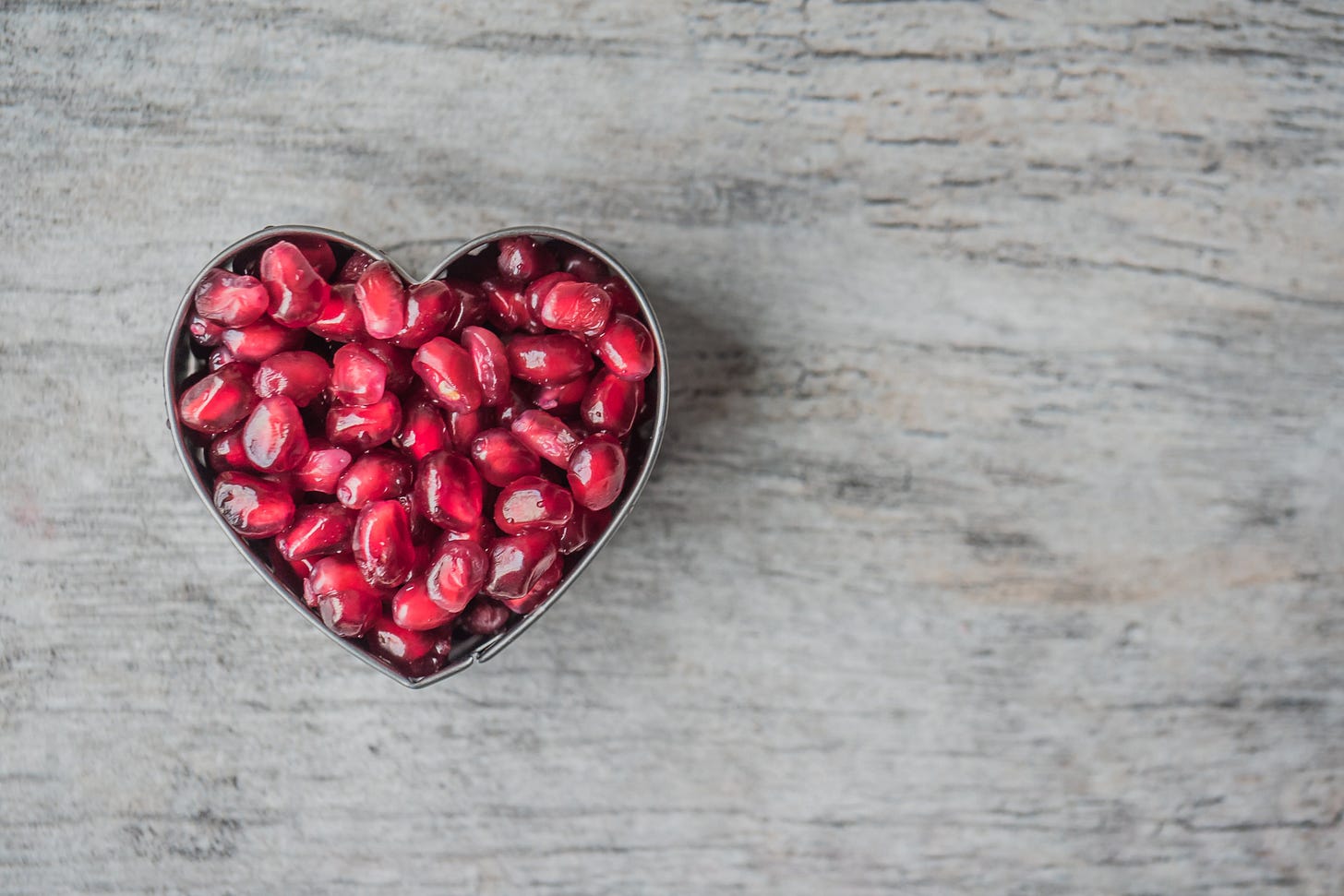Environment & Reproductive Health
Climate change affects human reproduction & may disproportionately affect women. Strategies for public health care, dietician recommendations & a Fertility Masterclass @ the State Library of Victoria.
Summer 2024 (Dec/Jan/Feb)
Happy Lunar New Year of the Dragon :)
Wishing you and your loved ones a happy, healthy and prosperous Lunar New Year 2024.
When I visited Cambodia over a decade ago, I saw the ‘bas-reliefs’ (or carved stone sculptures) of the temple ruins, which told the story of a legend.
Over several panels, intricate pictures showed koi fish. These fish would face three major challenges. They would swim away from their pond, jump upstream and up waterfalls, overcoming trials and tribulations to become... a dragon. This was analogous to a bureaucrat in ancient court rising through the ranks.
While now we may not be jostling for imperial favour, we do face daily life and struggle. And concerns around fertility can be a major life stressor.
Fertility Education
As such, I am placing a strong focus on fertility education. Reaching out to health care professionals around our Melbourne IVF Templestowe clinic in the eastern suburbs of Melbourne, I will be leading two education meetings.
The first is a GP Education Roundtable at Manningham General Practice, in Templestowe, on 20 Feb 2024 on navigating fertility pathways - cycle tracking, ovulation induction, IUI, IVF & ICSI.
The second is a GP Education Dinner at Box Hill Pavillion on 28 Feb 2024 (register here), which is accredited with the Royal Australian College of General Practitioners for continuing professional development. I will be talking about ‘Additional Interventions in Fertility', all of which I offer and provide to my patients:
Pre-implantation genetic testing (of embryos)
Fertility preservation
Inside the Life of a Fertility Specialist - Top 10 Daily Duties on YouTube
The work of a Fertility Specialist is multi-faceted. I was fortunate enough to talk on the Fertile Minds YouTube Channel about my work & Top 10 daily duties, including:
follicle scanning, pregnancy scans, egg collections, embryo transfers, education meetings, clinic consults, reviews, research, theatre & the IVF laboratory.
The Impact of the Environment on Human Fertility and Reproductive Health
On 11 and 12 May 2023, ESHRE (European Society of Human Reproduction and Embryology) hosted a livestream Seminar and Expert Meeting titled ‘The Impact of the Environment on Human Fertility and Reproductive Health’.
One of the international speakers was Dr Miguel Angel Checa Vizcaino, a Fertility Specialist from Barcelona, Spain, who spoke on air pollution and ART (assisted reproductive technology).
He had authored a systematic review paper on air pollution, which has been cited over 150 times, with some key takeaways:
More people are moving from rural to urban areas, and this displacement of the population to large cities is resulting in a dramatic increase in air pollution.
A small significant association exists between elevated air pollution and diminished fertility outcomes including rates of live births, fertility and miscarriage.
The four components of traffic air pollution that could impair human fertility:
Particulate matter/aerosols = complex mixture of solid & liquid particles that remain suspended in air, if small <2.5um (PM2.5) can penetrate deep into lung gas-exchange, or larger 10um (PM10) to the lower respiratory tract,
Nitrogen dioxide (NO2) = combustion of fossil fuels & motor vehicles,
Sulphur dioxide (SO2) = combustion of sulphur in fuel,
Carbon monoxide (CO) = industrial combustion, automobile exhaust and cigarettes.
This new research shows that human reproduction is influence by coarse particulate matter (PM, or aerosols) and distance to the roadway.
Overall, the ESCHRE expert panel recommended:
Inform the public of potential risks of occupational exposure to chemicals at pre-conception state, both in men and women in their workplace,
Public awareness of risk of environmental exposures on reproductive health.
This should be done through supporting and organizing public health campaigns and across all educational levels.
Climate and women’s rights
UN Women states that climate change may disproportionately impact women’s health and worsen health disparities. Women & girls may be vulnerable across the world, at risk of violence, due to socially determined roles and representation in poverty.
This is echoed by a special paper by Professor Linda Giudice, past president of ASRM (American Society for Reproductive Medicine) and IFFS (International Federation of Fertility Societies). The article was written on behalf of the FIGO Committee on Climate Change and Toxic Environmental Exposures.
The paper, ‘Climate change, women’s health, and the role of obstetricians and gynecologists in leadership’, notes that air pollution, heat, and vector borne illnesses could affect sexual and reproductive health & rights.
See quote below, for some sobering reading.
Year over year, record-setting data are observed for mean global temperature, rainfall, fires, storms, and vector-borne illnesses.
Global temperature extremes, droughts, floods, and impacts on food and water disproportionately affect the health of women who are more vulnerable to these effects due to their social status and family responsibilities.
Women and girls are at higher risk of sexual violence, sexual exploitation, abuse, trafficking, and intimate partner violence in response to displacement and their vulnerability. Psychological stress, anxiety, and depression are all common.
Therein, climate change is deemed ‘not gender neutral,’ as it increases social inequities, with ‘gender, sexuality, age, wealth, indigeneity, and race all determining factors in the vulnerability to climate change’.
…this underscores the need to prioritize and incorporate sexual and reproductive health and rights in national action plans and governmental policies for climate change mitigation and strategies long term.
Thus, the paper focuses on education, advocacy, collaboration and research. To educate the public of climate related health harms and advocate for policies to reduce pollutants.
Australian Context - Environment & Fertility
Ten Australian medical colleges, led by the Royal Australian College of Physicians (RACP) and including the Royal Australian & New Zealand College of Obstetricians and Gynaecologists (RANZCOG), lead a Healthy Climate Future initiative. This supports the Australian Federal Government’s recent Dec 2023 National Health and Climate Strategy, to:
Address the worsening environmental hazards of extreme heat, dangerous floods and fires, air pollution and drought,
Through various strategies of health care resilience, decarbonisation, international collaboration and a focus on health in all policies.
On a grassroots level my colleague and friend Dr Ying Gu, a sub-specialist in Obstetrics and Gynaecology Ultrasound (COGU), has written about climate change and fertility at Women’s Agenda, as well as been a guest on the Taking Care Podcast. She writes:
Numerous studies have shown a link between pre-pregnancy exposure to air pollutants and lower fertility and lower live births in natural conceptions and after IVF. By electrifying our transport and transitioning to renewable energy, not only will we slow global warming but we will also improve general and reproductive health.
Fertility Dietician
Let’s shift gears. Whilst important to have a broad overview of factors affecting the world, also necessary to focus on the granular details of our lives, such as targeting nutrition to optimise fertility. Start small, think big.
Here are Fertility Dietitian Celeste Costanzo’s top tips to boost the chances of conception (now, in the future, or with assisted fertility treatments) and promote a healthy pregnancy.
1. Embrace Anti-Inflammatory Foods
Include foods like leafy greens, berries, fatty fish (salmon, mackerel, sardines), and nuts daily in your diet. Stock up on colourful fruits and vegetables like berries, oranges, and spinach, as well as wholegrains and legumes such as lentils, chickpeas and borlotti beans. Eat the rainbow and include at least three different colours on your plate. Each colour contains different vitamins and minerals. These powerhouses are rich in anti-inflammatory compounds like omega-3 fatty acids and antioxidants.
2. Prioritise healthy fats
Unsaturated fats are recommended for supporting conception. Eat oily fish 2-3 times per week and ensure your daily dose of nutrient dense nuts and seeds such as chia and flaxseeds, walnuts, almonds, and Brazil nuts. Cook with extra-virgin olive oil and swap butter and margarine for fresh avocado.
3. Reduce Caffeine
If you’re having more than 2 cups of coffee per day, swap some of those cups for decaf or herbal teas.
4. Prioritise good sleep, daily movement, and stress management.
Aim for 7-9 hours of quality sleep each night. Stay active with activities you enjoy, like walking, swimming, or yoga. Exercise helps maintain a healthy weight. Practice relaxation techniques like meditation, deep breathing, or spending time in nature regularly.
Upcoming - Fertility Masterclass @ State Library of Victoria
In Melbourne, I love the State Library of Victoria. The La Trobe Reading room is a perennial favourite - with its octagonally arranged oak tables, green bankers’ lights and domed ceiling. I have admired the State Library ever since I visited during a high school excursion as part of our Book Club.
Happily, then, I will be presenting on ‘Genetic Testing & Fertility’ at the State Library of Victoria, for our upcoming GP Masterclass :) Register here.
Foundations of Fertility: A comprehensive masterclass for General Practitioners
Event details: Date: Saturday, March 16th 2024
Time: 9:00am - 4:00pm
Location: State Library of Victoria, 328 Swanston St, Melbourne
This comprehensive program features insightful presentations by leading fertility specialists, providing in-depth insights into the latest advancements and best practices in reproductive health.
GPs will have the unique opportunity to engage in hands-on simulator experiences, gaining valuable insights into the fertility journey of patients. This masterclass is designed to empower general practice professionals with the expertise needed to navigate the intricate landscape of fertility care.
Yay :) Iconic Melbourne building + Fertility Education = chef’s kiss x
Lots more in store for fertility care, education and advocacy this year in 2024 :)
Best,
Violet
Dr Violet Kieu - Fertility Specialist, Melbourne IVF
Information in the Freeze Fertility Newsletter is of a general nature only.
To make an appointment at East Melbourne, Templestowe or via Telehealth, please call (03) 9473 4695 or email drkieu.reception@mivf.com.au and visit www.freezefertility.com.au or Instagram @drvioletkieu







